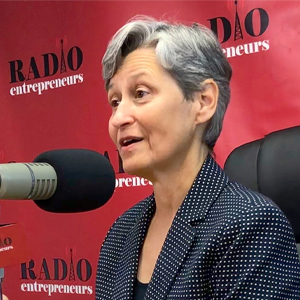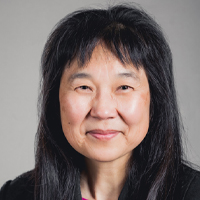RECORDING: Generative AI: A Gold Mine for Accelerated Development or a Risk of Copyright Infringement?
When
March 6, 2024
Click here to watch full webinar recording.
Event Overview
The advent of generative artificial intelligence (AI) has revolutionized content development. AI content generators use AI models created by detecting patterns and relationships in digital content, such as images, texts, or sounds. While generative AI technologies have emerged as powerful, innovative tools for the future, there has been a solid backlash reverberating from the creative community and copyright holders about using their works without permission. Meanwhile, many in the AI community have been operating with the understanding that using unlicensed copyrighted content as AI training data is “fair use” since there typically is no direct copying but instead recognizing patterns and synthesizing the detected patterns into statistical modeling data, which is used to create AI models. In an attempt to enforce their rights, copyright holders have reverted to litigation to protect their copyrights from being used to train AI systems without permission, and the courts are wrestling with a legal difficulty of whether the use of unlicensed copyrighted works as AI training material constitutes copyright infringement.
Join us to hear from our panel of experts for a discussion on AI technology and fair use in the AI content generator realm.
This panel presentation will discuss:
- How AI models can be engineered/generated from unlicensed copyrighted works and potentially be legally compliant.
- Best practices for reducing legal exposure of generative AI innovations and creative works.
- The impact of generative AI innovations and creative works in the public domain.
- Evaluating whether AI models generated from copyrighted works are transformative fair use under copyright law.
- Reviewing the Supreme Court cases that are most applicable to this issue.
- Navigating the marketplace conundrum of accelerated generative AI innovation with reduced IP protection and increased competition.
- Risks and benefits of widespread use of generative AI source code in the open-source software domain.
SPEAKERS
 Steve Kurlowecz, Vice President, Chief IP Counsel at Kyndryl
Steve Kurlowecz, Vice President, Chief IP Counsel at Kyndryl
Steve Kurlowecz is the Chief IP Counsel for Kyndryl, Inc., the world’s largest IT infrastructure services provider. He over sees all aspects of intellectual property protection and IP risk management for the company. From 2003 until 2021, Steve served as Senior IP Counsel for IBM’s Cloud and Cognitive So-lutions business units, responsible for intellectual property protection for their products and services business; including developing and implementing IP asset management strategies, software product clearance, adverse IP assertion investigations, source code licensing and M&A activities and providing guidance on software matters to IBM’s world-wide IP group.
Steve is a graduate of Suffolk University Law School and earned a Master's in Computer Science from Boston University as well as a Bachelor's in Computer Science from Framingham (MA) State College.
 Leslie Long, Intellectual Property Counsel at Dassault Systèmes– Americas
Leslie Long, Intellectual Property Counsel at Dassault Systèmes– Americas
Leslie Long is Senior Intellectual Property Counsel – Americas for Dassault Systèmes. He advises on transactional matters relating to commercial licensing agreements, involvement in consortia, customer inquiries, and open source matters. He specializes in advising on complex open source matters, application of open source licenses to new business models, and compliance with OpenChain specifications and cybersecurity requirements proposed in the United States and European Union. He has experience in due diligence of acquisitions, data rights, and assessment of machine learning/artificial intelligence technologies. Previously, Les worked in intellectual property licensing and technology assessment at the Georgia Institute of Technology and University of Maryland College Park, specializing in software licensing matters. He has a J.D. from the University of New Hampshire School of Law and B.A. in Computer Science from Texas State University.
 Leslie Swanson, CEO of eXalt Solutions
Leslie Swanson, CEO of eXalt Solutions
Leslie Swanson: President Founder of three tech startups & CEO of eXalt Solutions, a company that makes a patented AI-based platform to dramatically improve business-to-business sales. Prior to eXalt Leslie was President and CEO of Vigilant Networks, a network monitoring company that was sold to Gen-Tek, and Expert Views, a CAE/CAD/CAM database company sold to RR Donnelley. Leslie holds a BSEE from Case Western Reserve University and an MBA from the University of Rochester. After 30 years in the tech community, Leslie’s is committed to growing diversity in the tech sector in Boston and across the globe.. Her favorite charity is Code Squad, where she serves on the board.
 Mary Lou Wakimura, Principal and Chair of the Board of Directors at Hamilton Brook Smith Reynolds
Mary Lou Wakimura, Principal and Chair of the Board of Directors at Hamilton Brook Smith Reynolds
For over 35 years, Mary Lou has assisted clients with patent preparation and prosecution, copyright registration, and portfolio management. She has particular experience with computer-related technologies and systems relating to imaging, video applications, mobile applications, machine learning, various platforms (cloud based, SaaS), virtual currency, solid modeling, simulations and mathematical models. Mary Lou’s expertise spans medical systems, bio/chemical analyses and processing, bioinformatics and medical diagnostics, and alternative energy. Additionally, her patenting expertise includes social networks, associated operations, and electro-mechanical matters, with and without a software component.
 Giovanna Fessenden-Fairbank, Counsel and Digital IP Specialist at Hamilton Brook Smith Reynolds
Giovanna Fessenden-Fairbank, Counsel and Digital IP Specialist at Hamilton Brook Smith Reynolds
Giovanna is a computer scientist, intellectual property attorney, and blockchain specialist with 20+ years of experience advising high-tech companies and startups in software patents, software product development, licensing, open source software, trademark branding, post-grant patent challenges, litigation, and intellectual property strategy. Giovanna’s legal practice focuses on all areas of intellectual property law with an emphasis on technologies related to artificial intelligence (AI), machine learning, blockchain, non-fungible tokens (NFTs), esports and gaming.





